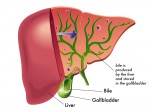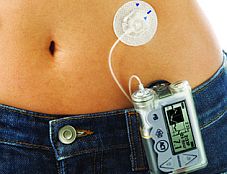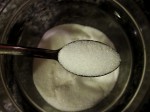The CDiabetes News Brief: November 10 to 16, 2014
Compiled and edited by Elizabeth Klein, MPhil
Weight loss programs help kids lower cholesterol
 High LDL (“bad”) cholesterol and high triglycerides are not just problems for adults. These problems, called dyslipidemia, can raise heart disease and stroke risk in both children and adults. They are also closely linked to obesity. This is why a recent study from Johns Hopkins University looked at how weight loss programs help obese kids lower their blood fats. They found that programs that encouraged children to eat better and exercise more were very effective for lowering cholesterol and triglycerides. This was true even if they did not lose very much weight during the program.
High LDL (“bad”) cholesterol and high triglycerides are not just problems for adults. These problems, called dyslipidemia, can raise heart disease and stroke risk in both children and adults. They are also closely linked to obesity. This is why a recent study from Johns Hopkins University looked at how weight loss programs help obese kids lower their blood fats. They found that programs that encouraged children to eat better and exercise more were very effective for lowering cholesterol and triglycerides. This was true even if they did not lose very much weight during the program.
Read More . . .
Lower diabetes risk seen after weight loss surgery
 Obesity–especially severe obesity–is a big risk factor for type 2 diabetes. But for some people, losing weight is not possible without weight loss surgery. The good news is that these surgeries (which include gastric banding and gastric bypass) can be very effective at lowering diabetes risk. A new study published in The Lancet of Diabetes and Endocrinology showed that people who had weight loss surgery were 80% less likely to get diabetes in the 7 years afterwards. The researchers believe that, along with good nutrition and physical activity, weight loss surgery could be a good way to combat rising rates of type 2 diabetes.
Obesity–especially severe obesity–is a big risk factor for type 2 diabetes. But for some people, losing weight is not possible without weight loss surgery. The good news is that these surgeries (which include gastric banding and gastric bypass) can be very effective at lowering diabetes risk. A new study published in The Lancet of Diabetes and Endocrinology showed that people who had weight loss surgery were 80% less likely to get diabetes in the 7 years afterwards. The researchers believe that, along with good nutrition and physical activity, weight loss surgery could be a good way to combat rising rates of type 2 diabetes.
Read More . . .
Text messages may help you get more physical activity
 Diabetes, obesity and heart disease risk is unusually high for Latinos. This is why researchers at the University of Kansas tried a new approach to helping them exercise more: motivational text messages. Every day, the researchers sent a small group of Latinos a text message describing one of the many benefits of physical activity. For example, one text said that exercise “reduces blood [glucose] levels;” another said that it “improves blood flow to the brain.” As a result of these reminders, the study group decided to do four times more exercise!
Diabetes, obesity and heart disease risk is unusually high for Latinos. This is why researchers at the University of Kansas tried a new approach to helping them exercise more: motivational text messages. Every day, the researchers sent a small group of Latinos a text message describing one of the many benefits of physical activity. For example, one text said that exercise “reduces blood [glucose] levels;” another said that it “improves blood flow to the brain.” As a result of these reminders, the study group decided to do four times more exercise!
Read More . . .
Bile acids may lower insulin resistance
 One reason researchers think diabetes and obesity are so strongly linked is that fat tissue can hold onto a lot of inflammation. This inflammation can make it difficult for insulin to move glucose into your cells for energy, leading to high blood glucose levels. New research published in the Journal of Clinical Investigation has shown that chemicals in bile, which is a liquid that helps us digest food, can get into the bloodstream and lower inflammation. We may be able to make artificial versions of these bile acids in the future to help combat obesity-related inflammation.
One reason researchers think diabetes and obesity are so strongly linked is that fat tissue can hold onto a lot of inflammation. This inflammation can make it difficult for insulin to move glucose into your cells for energy, leading to high blood glucose levels. New research published in the Journal of Clinical Investigation has shown that chemicals in bile, which is a liquid that helps us digest food, can get into the bloodstream and lower inflammation. We may be able to make artificial versions of these bile acids in the future to help combat obesity-related inflammation.
Read More . . .
People who use insulin pumps need to be careful of daylight savings time
 If you use an insulin pump, you know how important it is to make sure you are getting the right dose at the right times every day. A recent study published in the Journal of Diabetes Science and Technology has found that a simple change like daylight savings time can put insulin pump users at serious risk. The time change can make it easier to have dosing errors, which can lead to life-threatening problems like low blood glucose, high blood glucose, or diabetes ketoacidosis.
If you use an insulin pump, you know how important it is to make sure you are getting the right dose at the right times every day. A recent study published in the Journal of Diabetes Science and Technology has found that a simple change like daylight savings time can put insulin pump users at serious risk. The time change can make it easier to have dosing errors, which can lead to life-threatening problems like low blood glucose, high blood glucose, or diabetes ketoacidosis.
Read More . . .
Sugar is probably not addictive
 If you read a lot of nutrition news, you might have seen some people say that certain foods, by themselves, are addictive. But new research from the University of Edinburgh in Scotland suggests that this is not the case. The researchers found that the brain does not respond to sugar (or fat) in the same way it does to drugs. They did see that people can become addicted to eating, but that it’s far less likely to become addicted to specific foods.
If you read a lot of nutrition news, you might have seen some people say that certain foods, by themselves, are addictive. But new research from the University of Edinburgh in Scotland suggests that this is not the case. The researchers found that the brain does not respond to sugar (or fat) in the same way it does to drugs. They did see that people can become addicted to eating, but that it’s far less likely to become addicted to specific foods.
Read More . . .
“Intragastric balloon” surgery is very effective for weight loss
 Obesity rates have been rising across the world recently, so there’s a good chance that you or someone you know is affected by it. Diet and exercise alone aren’t enough for some people, so healthcare providers often suggest weight loss surgery as an option. A device called a gastric balloon, which inflates in your stomach and makes you feel more full, has helped many. A new type of balloon was recently tested on patients with obesity, and it was found that those who had the balloon lost more weight with exercise and healthy eating than those without.
Obesity rates have been rising across the world recently, so there’s a good chance that you or someone you know is affected by it. Diet and exercise alone aren’t enough for some people, so healthcare providers often suggest weight loss surgery as an option. A device called a gastric balloon, which inflates in your stomach and makes you feel more full, has helped many. A new type of balloon was recently tested on patients with obesity, and it was found that those who had the balloon lost more weight with exercise and healthy eating than those without.
Read More . . .
Unhealthy eating can affect the immune system, even after habits change
 Any healthcare provider will tell you that a balanced meal plan is important for good health. Eating unhealthy food has all sorts of negative effects on your body, like increasing your risk for diabetes and heart disease. New research has shown that these effects could carry on even if you later improve your eating habits. Researchers recently tested mice to see how a high fat, high cholesterol meal plan, which is common in America, affected their health. They found that it could cause genetic changes that affected them even after they had changed their meal plans.
Any healthcare provider will tell you that a balanced meal plan is important for good health. Eating unhealthy food has all sorts of negative effects on your body, like increasing your risk for diabetes and heart disease. New research has shown that these effects could carry on even if you later improve your eating habits. Researchers recently tested mice to see how a high fat, high cholesterol meal plan, which is common in America, affected their health. They found that it could cause genetic changes that affected them even after they had changed their meal plans.
Read More . . .
Therapy may boost weight loss results
 Often, the first thing healthcare providers suggest for weight loss is more exercise and healthier meal plans. These are usually seen as the best way to lose weight in a healthy way, but weight loss counseling may also help. A new study looked at research from over 30 years and found that those who had counseling alongside exercise and meal plans lost more weight on average. This was up to 14.5 pounds more than those who didn’t! The counseling involved 14 face-to-face sessions over six months, and they lasted only 10 minutes each.
Often, the first thing healthcare providers suggest for weight loss is more exercise and healthier meal plans. These are usually seen as the best way to lose weight in a healthy way, but weight loss counseling may also help. A new study looked at research from over 30 years and found that those who had counseling alongside exercise and meal plans lost more weight on average. This was up to 14.5 pounds more than those who didn’t! The counseling involved 14 face-to-face sessions over six months, and they lasted only 10 minutes each.
Read More . . .
Risk for heart disease may depend on ethnicity
 Researchers already know that different ethnicities have different chances of getting certain diseases, like diabetes and heart disease. New research has found risk factors for heart disease, also called cardiovascular disease (or CVD), are more common for some groups than for others. Diabetes, for example, is more common among black people and those of South Asian backgrounds. People of other backgrounds were more likely to be obese than others. However, all the groups tested were less likely then white people to smoke, which is a big risk factor for CVD.
Researchers already know that different ethnicities have different chances of getting certain diseases, like diabetes and heart disease. New research has found risk factors for heart disease, also called cardiovascular disease (or CVD), are more common for some groups than for others. Diabetes, for example, is more common among black people and those of South Asian backgrounds. People of other backgrounds were more likely to be obese than others. However, all the groups tested were less likely then white people to smoke, which is a big risk factor for CVD.
Read More . . .

